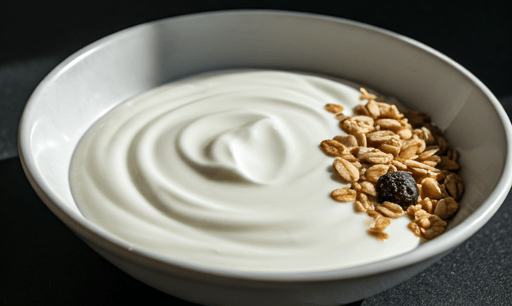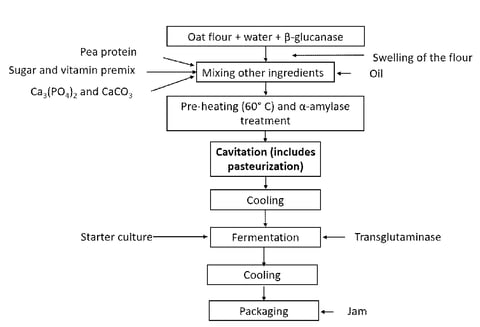Innovating Plant-Based Yogurt using Cavitation: Oddlygood's Patent
DAIRY & ALTERNATIVES SUSTAINABILITY


The plant-based food sector continues to thrive, driven by health-conscious consumers, environmental concerns, and dietary restrictions such as lactose intolerance or milk allergies. Among the diverse offerings in the market, spoonable products like yogurt alternatives, commonly referred to as "gurts," hold a promising position. However, developing high-protein, high-fiber plant-based products comes with challenges, particularly related to viscosity, solubility, and processing limitations.
A recent patent application by Oddlygood (owned by Valio) introduces an advanced process for producing plant-based dairy analogues, emphasizing oat-pea suspensions. This method addresses the complexities of traditional production, such as equipment fouling and inconsistent product texture.
The Role of Cavitation in Enhancing Product Quality
Unlike conventional homogenization, the Oddlygood process integrates cavitation technology to modify the protein-starch network within plant-based suspensions. In this process, mechanical forces generated during cavitation—such as high shear, pressure, and heat—break down protein aggregates, improve water-protein interactions, and enhance solubility. This technique results in a more dispersed protein-starch network, improving the mouthfeel, viscosity, and overall sensory attributes of the final product.
Moreover, cavitation is effective at mitigating fouling issues in processing equipment, reducing operational challenges. When combined with homogenization, the process further refines the product, allowing for the creation of both spoonable and drinkable plant-based yogurts.
Key Steps in the Oddlygood's Innovation
The production method comprises several critical stages:
Preparation of Suspension: Mixing plant-based raw materials, such as oat and pea, with water to form an aqueous suspension.
Enzymatic Treatment: Utilizing beta-glucan degrading enzymes and starch-degrading enzymes to improve suspension consistency.
Cavitation: Subjecting the suspension to controlled cavitation to modify its macro-components, ensuring homogeneity and reduced viscosity.
Optional Steps: Incorporating homogenization, acidification, and protein crosslinking enzymes to achieve desired product characteristics.
Fermentation and Cooling: Fermenting the product until a pH of 4.0–4.9 is reached and cooling it to produce a ready-to-consume plant-based yogurt alternative.
Product Benefits and Applications
The resulting product boasts a viscosity range of 50 mPas to 1000 mPas, providing versatility for both spoonable and drinkable applications. Its protein content, ranging from 0.5% to 20% (w/w), caters to health-focused consumers, offering a nutritious alternative to traditional dairy.
The Oddlygood innovation also opens doors for further customization, enabling the addition of flavors, vitamins, minerals, and other ingredients without compromising the structural integrity or sensory appeal of the product.
Sustainability and Market Prospects
By leveraging cavitation technology, the company reduces the environmental footprint associated with traditional dairy and plant-based product manufacturing. With the growing demand for clean-label, plant-based options, this innovation can make significant waves in the market, setting a new benchmark for taste, texture, and nutritional quality in plant-based dairy alternatives.


